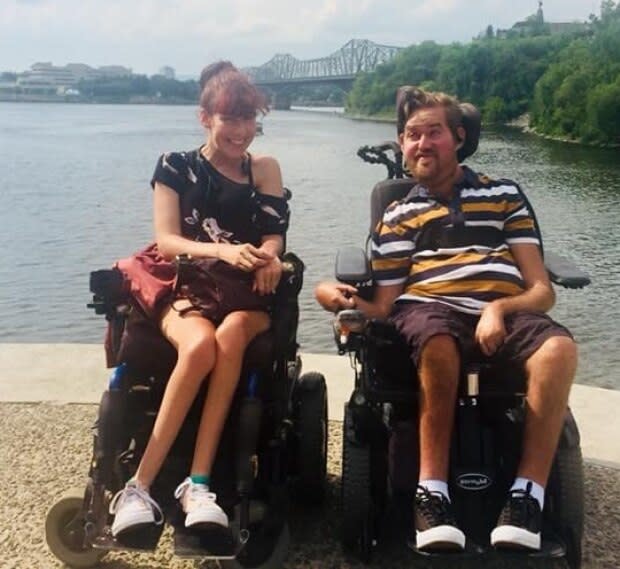Fearful of COVID-19, this Ottawa woman has told her caregivers to stay away
Before the COVID-19 pandemic, Kristen Williams relied on personal support workers for help with such basic tasks as getting out of bed, eating and going to the bathroom.
But since March 14, Williams, who has cerebral palsy, has refused the visits to protect herself and her caregivers.
"If and when one of us does contract the virus — whether attendant or client — we all get it. And as people with disabilities, because we have those underlying conditions, we are all likely going to need hospitalization," she said.
Williams lives in a supportive housing unit in an Ottawa apartment building that's home to others with disabilities. The non-profit VHA Health & Home Support rents one unit as a 24/7 base for its attendants.
Williams siid when the pandemic hit, she lost confidence in VHA's ability to protect people like her who are at an elevated risk of complications from COVID-19.

'I have been struggling'
The last three weeks have taken their toll on Williams, who has been unable to shower. Instead, a friend has been helping her wash her hair in the sink.
"I have been struggling quite a lot. I get tired easily and quickly. I had that care for a reason. Now that I don't have it, life has gotten a lot harder," Williams said.
As hard as it is, she knows some of her neighbours in supportive housing — those who are quadriplegic or have spinal muscular atrophy, for example — simply don't have a choice when it comes to the visits from caregivers.
VHA executive director Valerie Bishop de Young said while she understands some clients might be fearful, the agency has implemented new protective measures and has notified clients about them. The precautions include screening of attendants for recent travel or symptoms, and limiting their contact with multiple clients.

Facts, not fears
"I understand that people are anxious — we all are. But part of staying healthy is focusing on facts and not fears. We at VHA have put effective actions in place, and other actions are always being considered and implemented," Bishop de Young said.
She said 27 of VHA's approximately 400 attendants have stopped coming to work since the pandemic began, either because of child-care issues or because they fear becoming infected.
VHA is giving those who remain on the job an additional weekly stipend of $150, and says it has enough staff to cover the needs of its clients.
"We're keeping up with clinical expertise. Our workers are educated and informed. We're adamant that our people know what they're doing, and we're confident that our staff are doing the right thing," Bishop de Young said.


